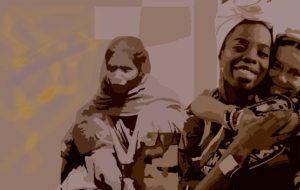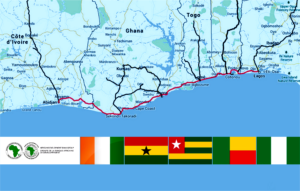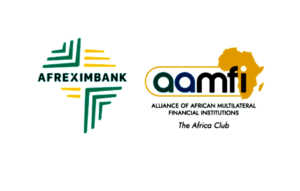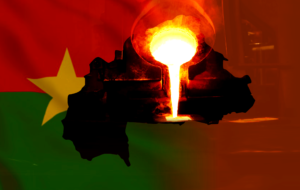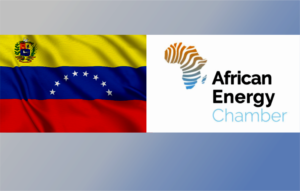Ghana’s $1.5 Billion Port, SkyTrain, and Mega Projects: Promise, Politics, and the Price of Progress
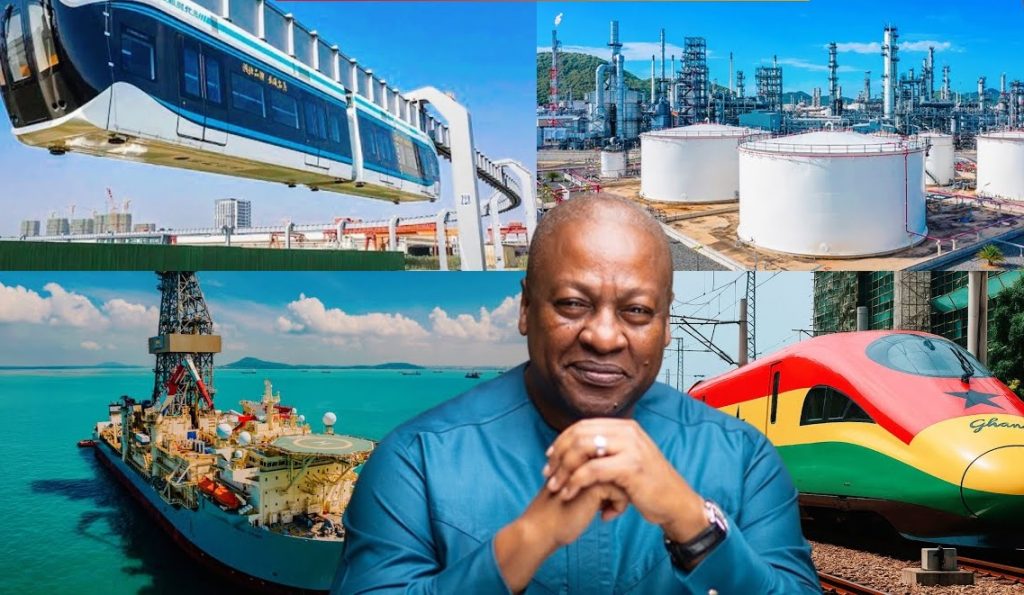
Accra, Ghana is once again in the spotlight for its ambitious push into large-scale infrastructure development. From a touted $1.5 billion port expansion to a futuristic SkyTrain system and multi-billion-dollar housing and petroleum projects, the country is positioning itself as a rising hub for logistics, energy, and urban innovation in West Africa.
But behind the sleek promotional videos and ribbon-cutting ceremonies lie a deeper set of questions: How sustainable are these projects? Who really benefits? And how do they reshape Ghana’s diplomacy, economy, and everyday lives?
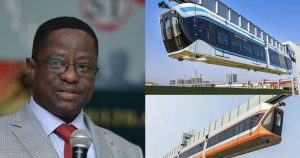
Among the most high-profile ventures is the Tema Port expansion, valued at around $1.5 billion. Already West Africa’s busiest container port, Tema’s upgrade aims to handle three times its current traffic and cement Ghana as the region’s maritime gateway.
Then there is the much-discussed Accra SkyTrain, a light-rail urban transport system meant to ease congestion in one of Africa’s fastest-growing cities. Though still awaiting full financial closure, it has captured public imagination as a leap toward modern urban mobility.

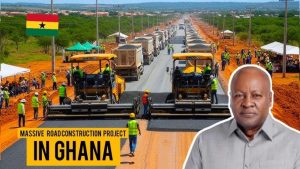
Meanwhile, Ghana has committed to three colossal ongoing projects:
- A $12 billion Petroleum Hub in Jomoro, Western Region, projected to be one of Africa’s largest energy complexes by 2036.
- A National Housing Program, targeting nearly 9 million units over 32 years with a $50 billion price tag, aiming to address severe housing shortages.
- A network of hospital and health facility upgrades, including the 250-bed Kumasi-Sewua Regional Hospital, part of a broader agenda to expand medical access nationwide.
These projects are not just domestic endeavors; they are tools of diplomacy. Much of Ghana’s infrastructure push is backed by partnerships with China, Singapore, South Africa, and international financial consortia.
By branding itself as a stable, democratic gateway to West Africa, Ghana is competing with neighbours like Nigeria and Ivory Coast for investor confidence. Each signed contract doubles as a diplomatic handshake-evidence that Ghana is open for business despite regional instability.
But heavy reliance on foreign finance also raises questions about sovereignty. Critics point to clauses in some loan agreements that give international partners outsized control over key assets if Ghana struggles to meet debt obligations.
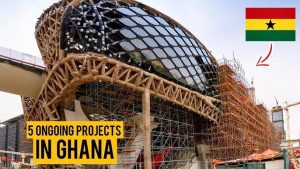
The ripple effects for Ghana’s private sector are enormous. Local construction companies, logistics operators, and service providers are being drawn into government contracts on a scale unseen before.
In particular, real estate and property development are booming. The National Housing Program is not just about shelter, it’s about creating an entire ecosystem of contractors, land surveys, mortgage systems, and public-private partnerships. Land values around project sites have already spiked, especially in Greater Accra and the Western Region.
For Ghana’s burgeoning middle class, this creates both opportunities and anxieties. While some see prospects for home ownership, others worry that state-backed projects may fuel gentrification, pushing low-income families further to the margins.
To the ordinary Ghanaians, the promise of new hospitals, housing and transport systems is tangible progress of fewer hours stuck in traffic, improved access to healthcare, a chance at affordable homes, socioeconomic ease, etc.
Yet there are social trade-offs. Mega-projects often involve land acquisitions that displace smallholder farmers and local communities. Civil society groups warn that without robust consultation, projects meant to uplift can deepen inequality.
The SkyTrain, for example, may transform Accra’s skyline but could remain out of reach for lower-income commuters if fares are set too high. Similarly, the petroleum hub raises environmental concerns for fishing communities in Jomoro, who fear losing livelihoods to industrial development.
Politically, infrastructure has become one of Ghana’s most powerful campaign tools. Governments from both the New Patriotic Party (NPP) and the National Democratic Congress (NDC) have used big projects to showcase vision and capacity.
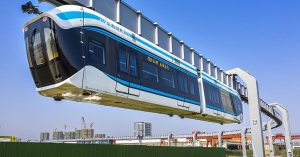
But critics argue that flashy announcements often outpace delivery. The SkyTrain project has faced repeated delays, and questions linger about the financing structure. Opposition politicians warn of “white elephants,” projects that drain public coffers but deliver little practical value.
With elections approaching, infrastructure promises are once again shaping political narratives. Success stories could bolster incumbents, while stalled or abandoned projects could become symbols of overreach.
Ghana’s mega-project drive sits at the crossroads of aspiration and realism. On one hand, these initiatives could transform the country’s logistics, housing, and healthcare landscape, making it a regional powerhouse. On the other, they expose Ghana to mounting debt, environmental risks, and social strains.
For now, cranes continue to rise on construction sites, and negotiations with global investors press forward. The question is whether Ghana can balance its bold vision with sustainable execution to ensure that billion-dollar blueprints become more than just architectural renderings of a dream.
In high hopes, Ghanaians and Accra resident will welcome the future, but would also hope it is built for them, not only for the politicians or the foreigners.


